Farmers from across the country gathered in Delhi for two days, November 29 and 30, to protest for loan waiver and better MSP (minimum support price) for crops.
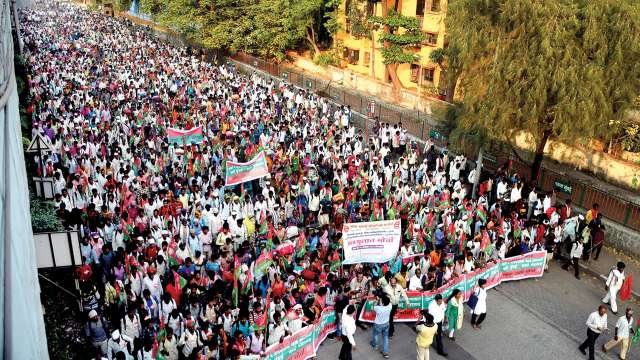
The march, called the Kisan Mukti March, started on November 29 from different corners of Delhi – Bijwasan, Majnu Ka Tila, Nizamuddin, and Anand Vihar – to Ramlila ground.
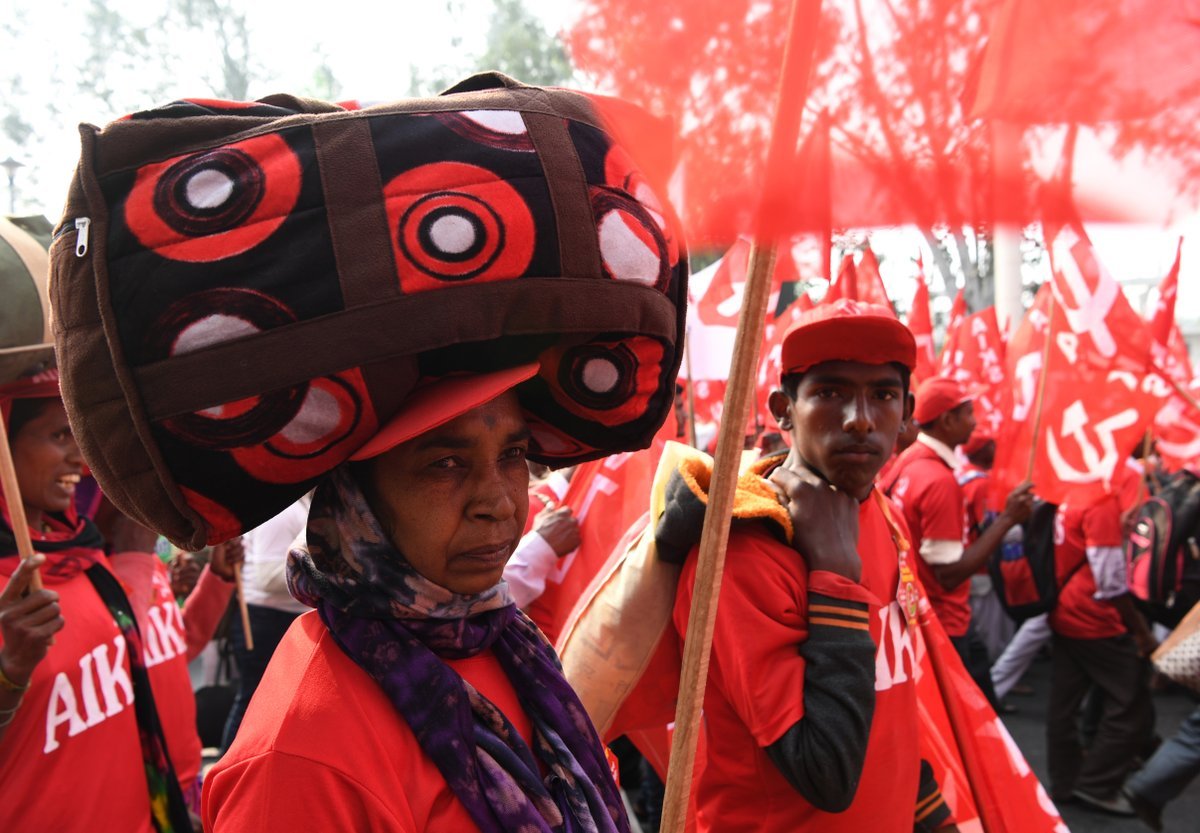
As per reports, on November 30, 207 farmer groups led by the All India Kisan Coordination Committee were denied permission by the police to march to the parliament.
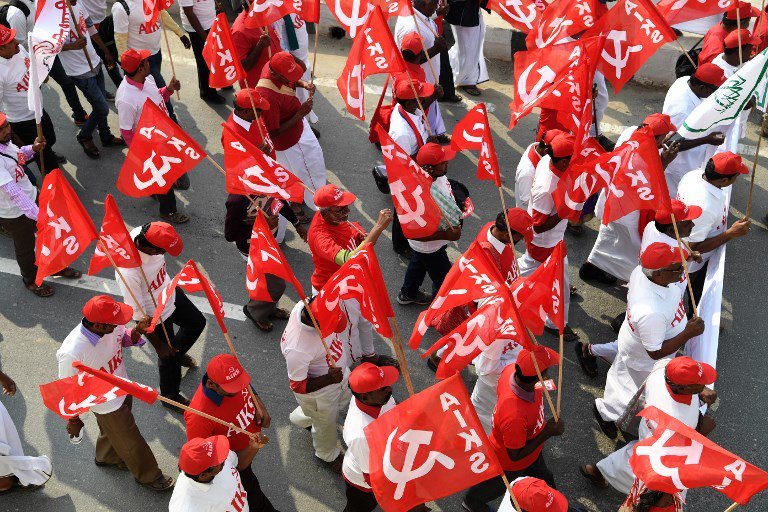
Farmers in the number of 35,000 – from 24 different states – then converged near Parliament Street Police station to continue their protest.
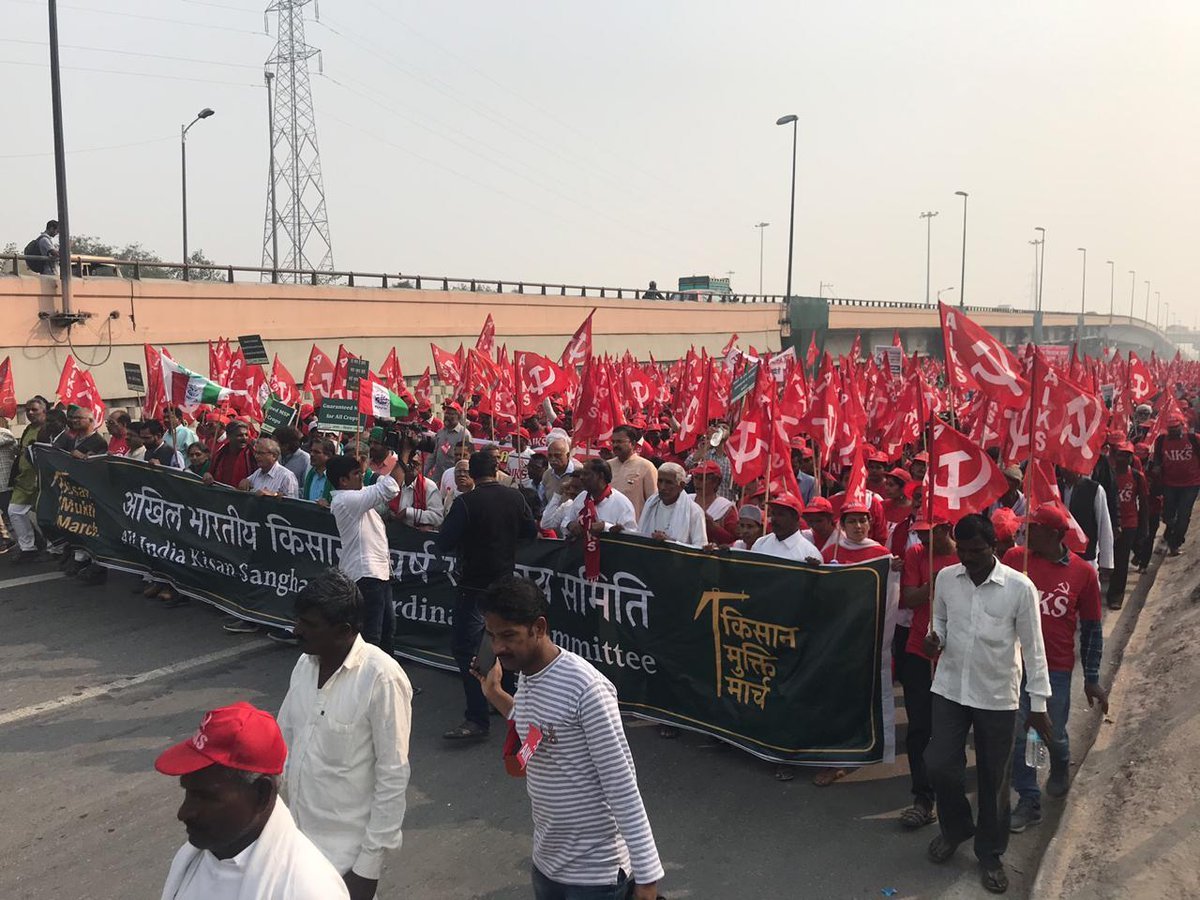
21 political parties, including the main opposition party, Congress, came out in support of the farmers.
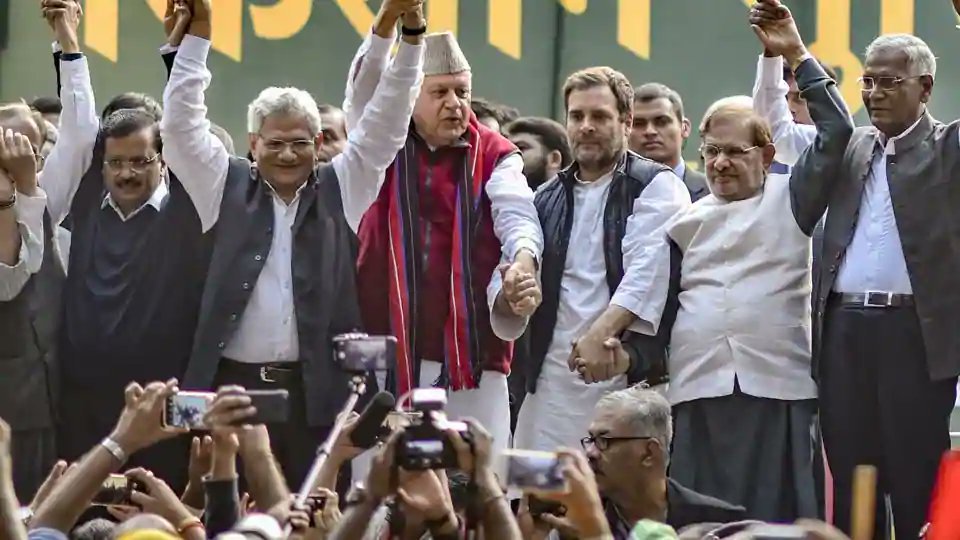
At the heart of it, the protest is against the increasing expenditure but decreasing farm income. Especially disheartening is the fact that because of extreme weather conditions leading to crop loss, farmers are unable to pay off their existing loans, and are often forced to take on more loans.
Delhi: Latest #visuals from near Jantar Mantar on the second day of 2-day protest by farmers from all across the nation, who are asking for debt relief, better MSP for crops, among other demands pic.twitter.com/SIccqj6DIo
— ANI (@ANI) November 30, 2018
Delhi: Farmers from all across the nation hold protest for the second day over their demands of debt relief, better MSP for crops, among others; latest #visuals from near Barakhamba Road. pic.twitter.com/Po5aGAhuSk
— ANI (@ANI) November 30, 2018
The farmers came out in protests, either barechested in the cold November or holding skulls of other farmers who’d committed suicide when they were unable to repay their loans.
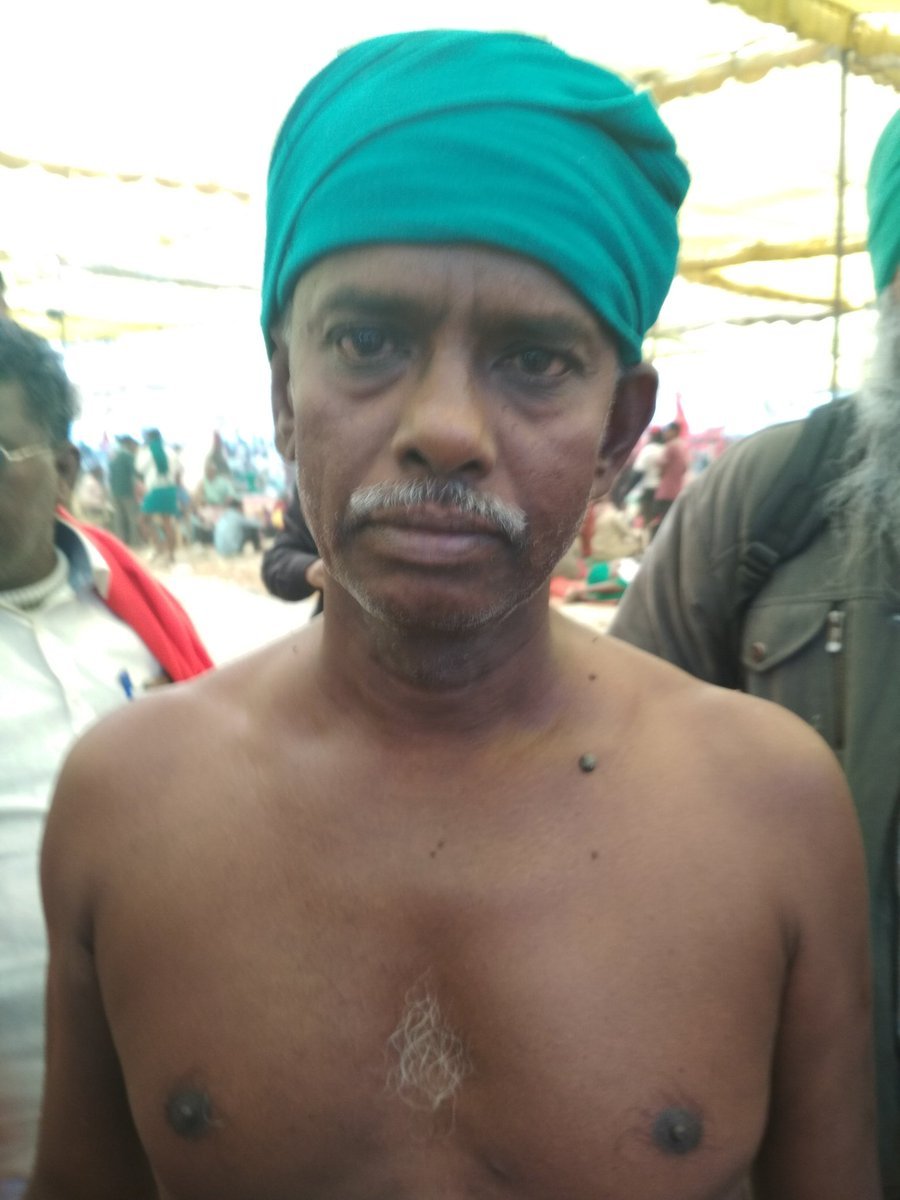
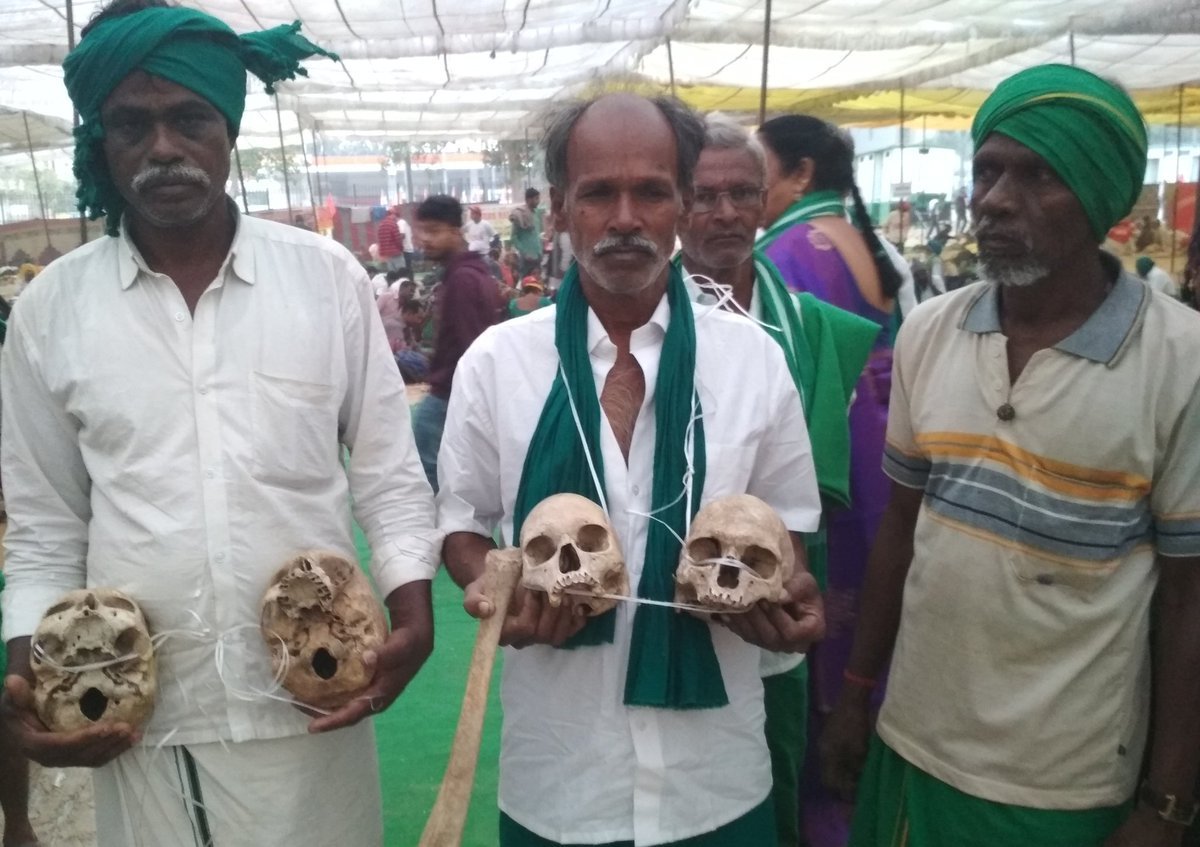
Wives of farmers who’d committed suicide also joined the protest, with photos of their husbands with them.
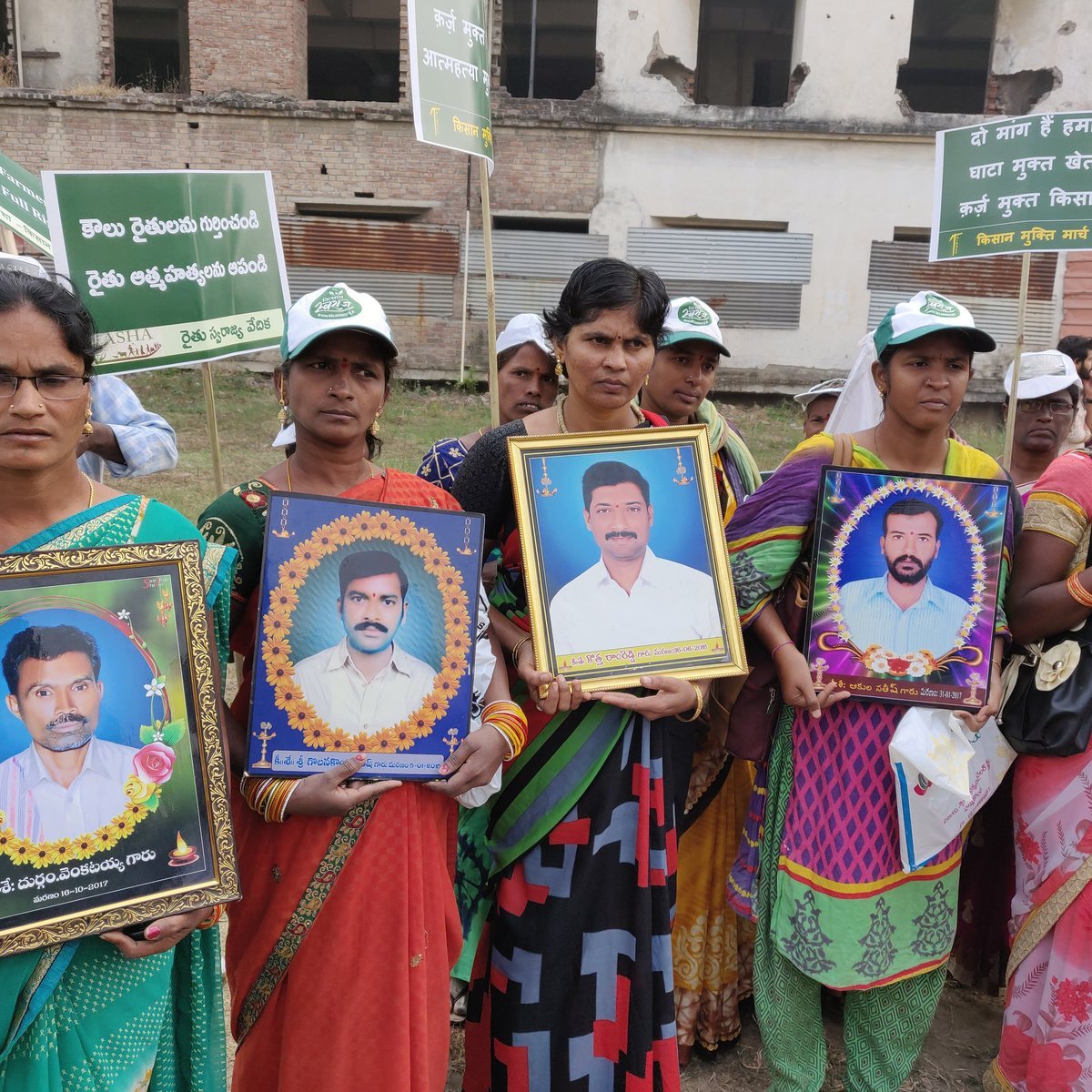
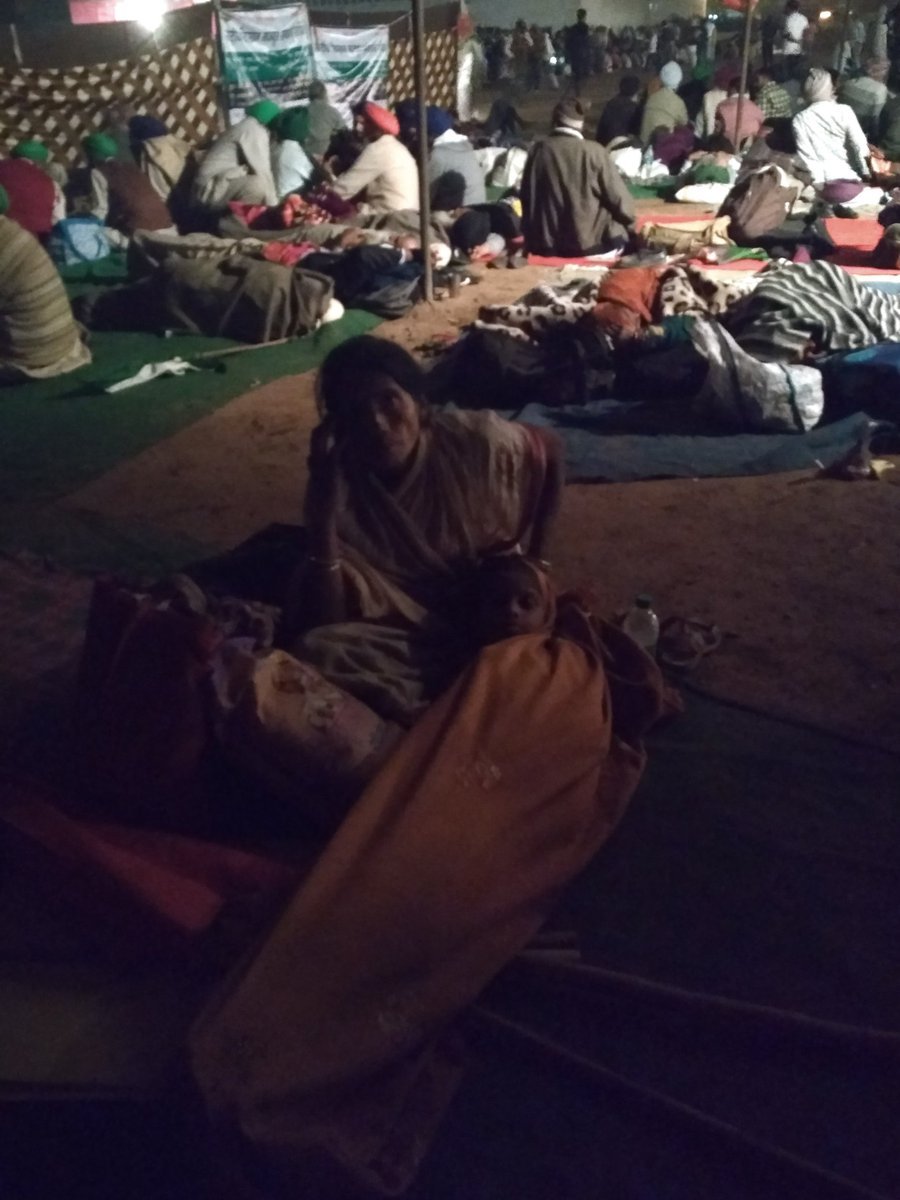
Just like the protest conducted earlier this year, the farmers were not only aware of the inconvenience the march may cause to the people, but also apologized for the same.
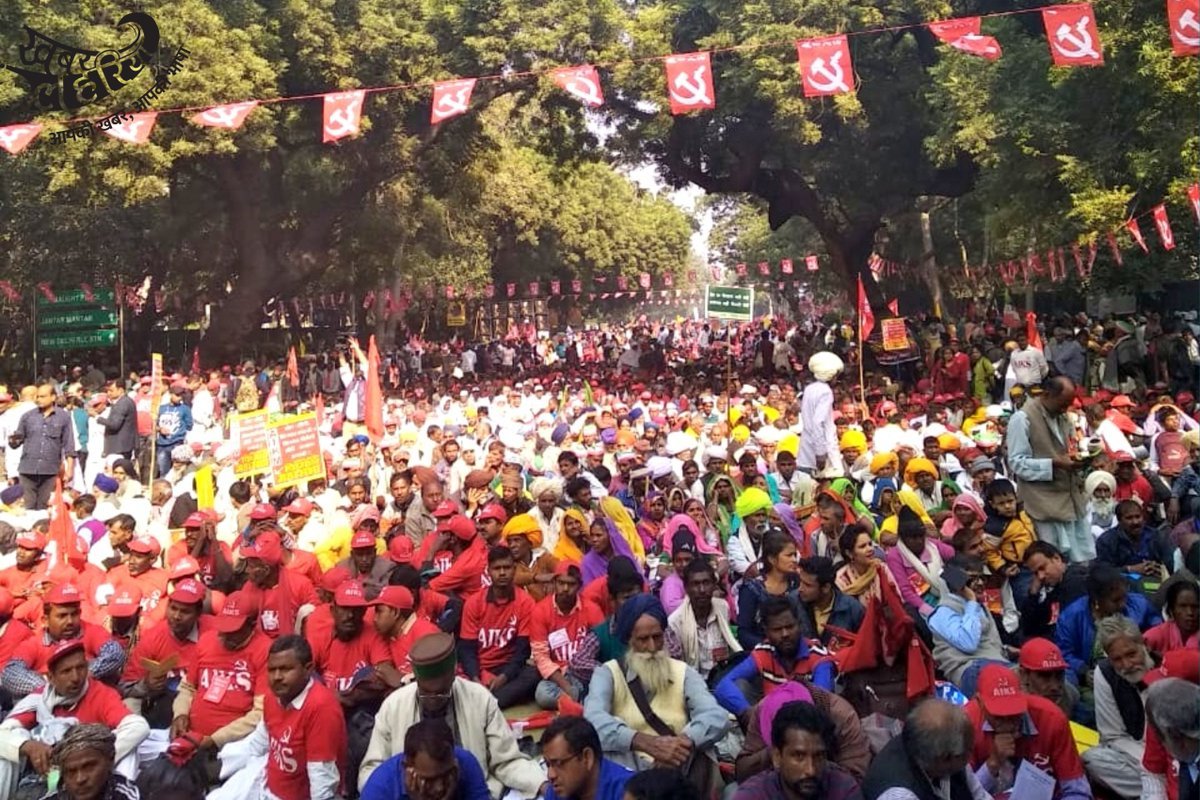
However, with the apology notes – that they handed out to the people around Ramlila grounds – also detailed the compensation that farmers were receiving for their produce.
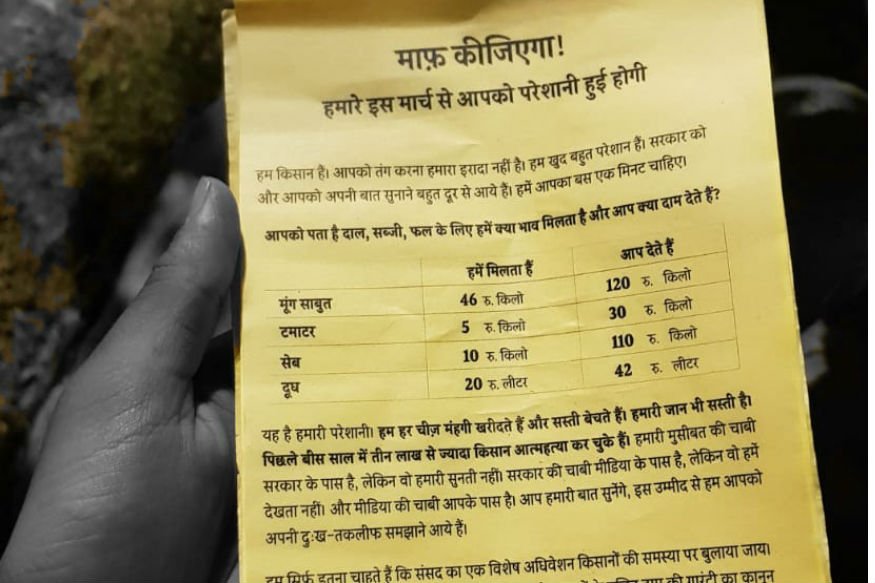
The stark difference in what we pay and what the farmers actually receive is shocking, to say the least. People also took to social media to share news of the protest and lend support to the farmers.
Salute to these young doctors, who
have come to support our Farmers allthe way from Aligarh. Ramlila MaidanDelhi #KisanMuktiMarch#FarmersMarch #FarmersProtestpic.twitter.com/AIDFOtCE0m— #KisanMuktiMarch (@_kehkelunga) November 30, 2018
From 8 am to 5 pm…. I have sequenced the day in 4 pics. They are returning with barefoot! #KisanMuktiMarch #FarmersMarch #FarmersProtest #DilliChalo pic.twitter.com/CTd9sX8NAN
— Suchi Soundlover (@suchiseetharam) November 30, 2018
Truth is we don’t know the importance of the food producer.
We know our food app delivery guys much more than the ones who actually grow rice, wheat and pulses for us. How will our society progress with such an attitude?#farmers matter!#farmersprotest— Vijaya Moorthy (@vmoorthynow) November 24, 2018
Today in #Delhi all India Farmers protest… people support us🙏#FarmersProtest pic.twitter.com/qYYiDBM5AM
— Tharun Kumar (@tharun98pdkt) November 29, 2018
This is how the intellect of this nation is bastardised.
Check the prices farmers say they are forced to sell their produce.Now compare this with the prices you buy the stuff. Note the difference.The tragedy of #FarmersProtest is not the price you pay. It is the middleman. https://t.co/z9qDX6d0gb— S. Krishnan (@krishnanism) November 28, 2018
Farmers from #TamilNadu, back in 1000+ after govt ignored their 141-days protest last year. “Now we have come with farmers from 21 states.” They’re holding the skulls of farmers who committed suicide last year. #farmersmarch #FarmersProtest #DilliChalo #KisanMuktiMarch pic.twitter.com/z9b4fT1G8j
— Rohini Mohan (@rohini_mohan) November 29, 2018
Solidarity with the thousands of farmers marching in Delhi today. We stand with you in your fight for better labour laws, food security, housing and education for all. #DilliChalo #NationForFarmers #FarmersProtest pic.twitter.com/DZFTiUfOc3
— Preeti Singh (@preetisings) November 28, 2018
Daughters marching with pictures of their fathers who committed suicide because of agrarian crisis #FarmersProtest #FarmersMarch #ChaloDilli pic.twitter.com/4ioS6Hlkvp
— Neha Dixit (@nehadixit123) November 29, 2018
More than one lakh farmers from across the country reached New Delhi today for a two-day march to press for their demands. I stand in solidarity with them. We as a nation must ensure better life for our farmers.#FarmersProtest #FarmersMarch pic.twitter.com/Fb0CbWgUMV
— Manoranjan Rout (@Manoranjan_INC) November 29, 2018
The Indian railways unreserved compartments from across the country has brought thousands of farmers’ stories to Delhi today. #KisanMuktiMarch #dillichalo #farmersmarch This one is of a 75-yr-old marginal farmer from Puri to Delhi pic.twitter.com/KnzlWOqojW
— Rohini Mohan (@rohini_mohan) November 29, 2018
Despite what they’re facing, the farmers were still more organized, considerate, and aware of their actions and demands than most political parties today are. For that very reason alone, it is imperative that the government listens to their demands, and comes up with a viable solution to the current agrarian crisis.

















